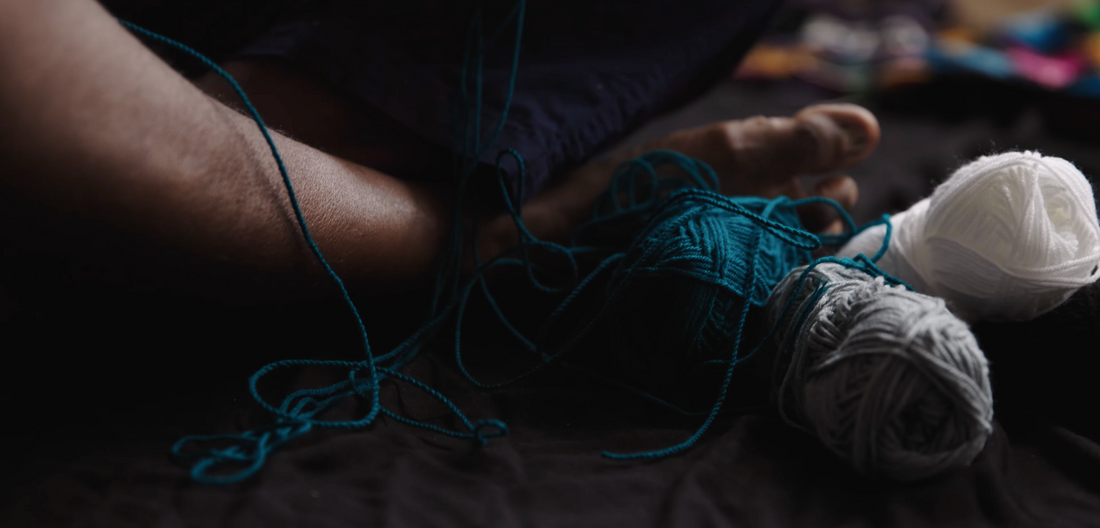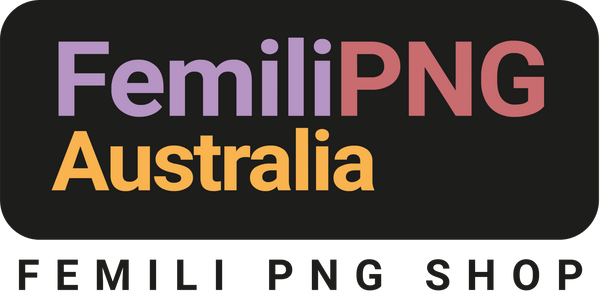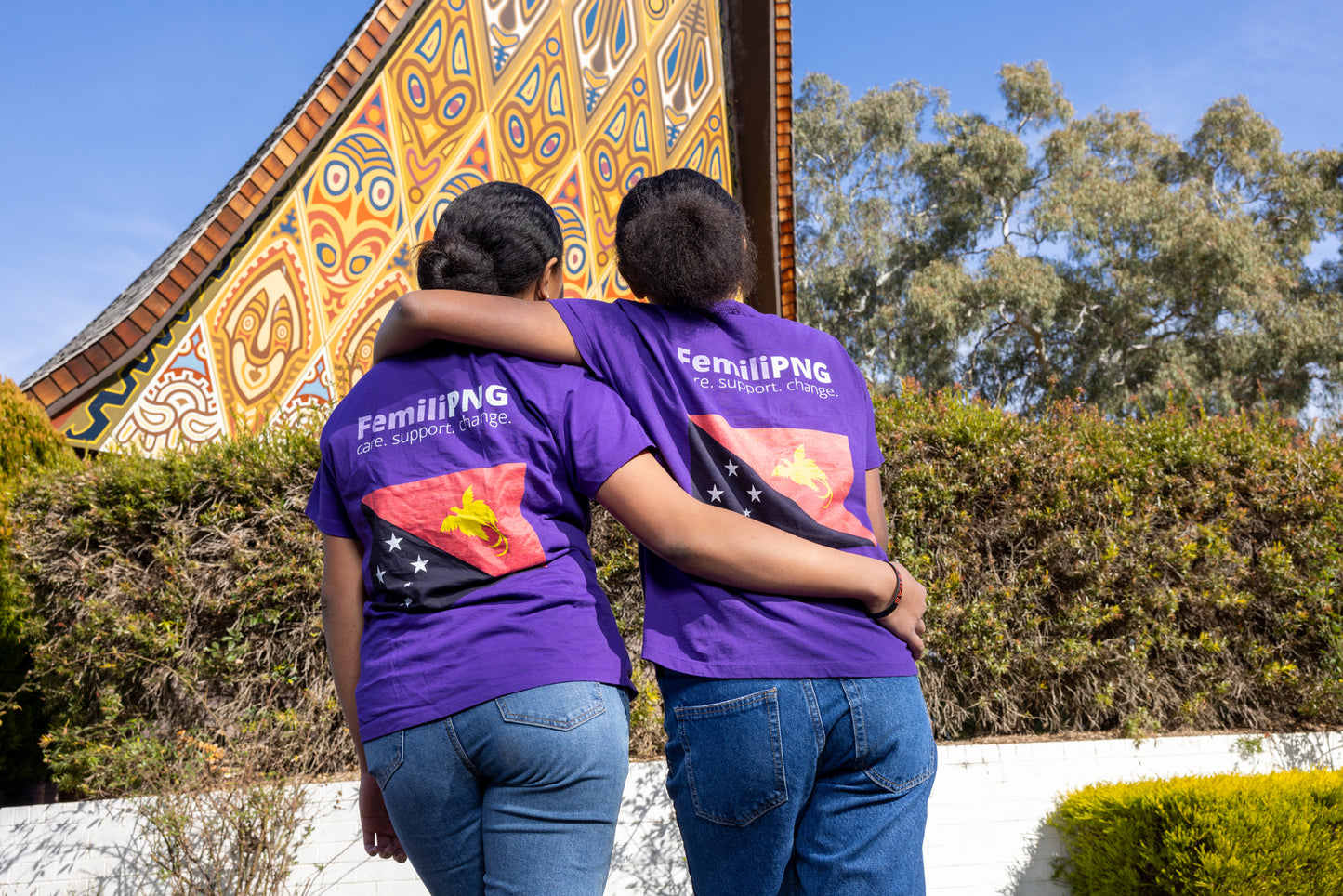
The Process of Making a Bilum
Share
In Papua New Guinea, bilums are more than just beautifully woven bags - they’re a vibrant expression of culture, creativity, and resilience. Made exclusively by Papua New Guinean women, bilums are not only practical carry-alls but also represent a powerful opportunity to empower women economically. At FemiliPNG Australia, we sell these stunning bilums to raise funds that support Femili PNG’s vital work, offering life-changing services to survivors of family and sexual violence.
Crafting a Bilum
Traditionally, bilums are crafted from natural fibres, using time-honoured techniques passed down through generations. The process begins with local plants and trees, which are cut down and taken back to the weaver’s village. There, the bark is carefully separated from the stem and beaten until it’s completely flat. After drying, the bark is split into thin, loose strips, ready to be spun into fibrous threads.
To create these threads, known as ‘bush rop’ (bush rope), the weaver rolls a dried strip of bark on her thigh, moving it back and forth until it forms a long, flexible strand. After a wash, the strand is ready to be woven into a bilum. This meticulous process, called ‘tanim rop’ (turning rope), can take several weeks. For those seeking to add a splash of colour, natural dyes are used - like grinding turmeric root for yellow threads or using local flowers, fruits, and leaves to achieve various hues. This dyeing process can add several extra days to the bilum-making journey.
While traditional natural fibre bilums remain cherished, today’s bilums are often made with vibrant cotton strands or durable nylon. Cotton bilums showcase a wide array of colours and patterns, adding a modern twist to the traditional craft. Nylon bilums, known for their strength and resilience, are perfect for everyday use and can handle heavier loads, making them a practical choice for many people.
In addition, possum fur is sometimes used, offering a unique texture and warmth to the design. Possum fur bilums are especially valued for their softness and durability, adding yet another layer to the rich tapestry of bilum weaving traditions. Whether made from natural fibres, cotton, nylon, or possum fur, each bilum carries a piece of PNG’s heritage and the skilled artistry of its women.
Empowering Women Through Bilums
Bilum weaving is not just a craft; it is a means of economic empowerment for Papua New Guinean women. Some of the bilums we sell are woven by clients accessing Femili PNG’s case management services. By purchasing these bilums, you support these women in becoming financially independent, helping them break free from the cycle of violence. Other bilums are sourced from various local weavers at markets across PNG.
Every bilum sold by FemiliPNG Australia supports Femili PNG’s efforts to provide life-changing assistance to survivors of violence. By purchasing a bilum, you are not only acquiring a piece of PNG’s cultural heritage but also contributing to a brighter, safer future for survivors of family and sexual violence.
Explore our collection of bilums and find one that resonates with you, knowing that every purchase makes a difference.


